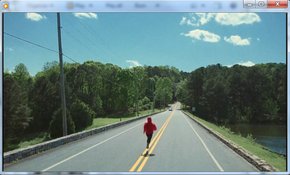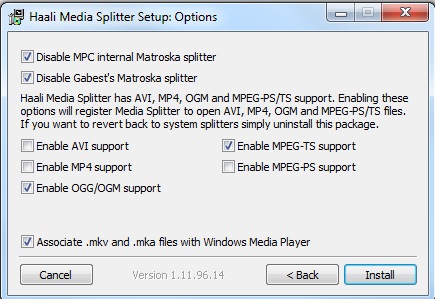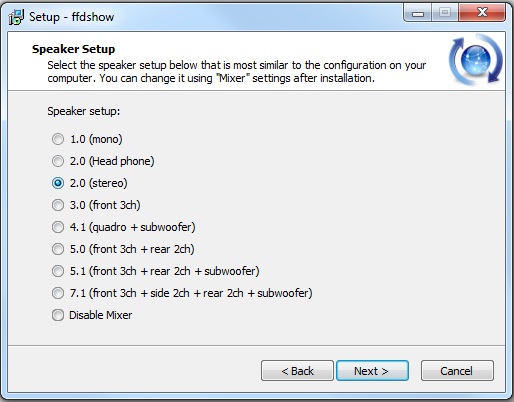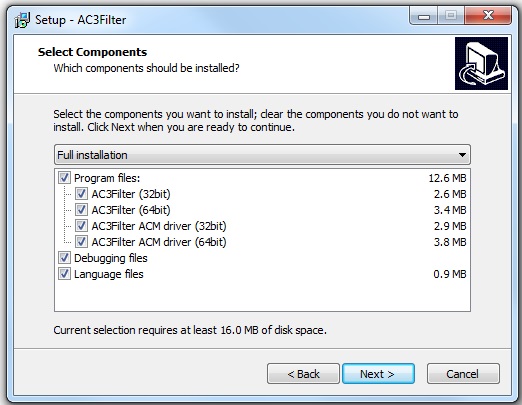Play MKV files with Windows Media Player
 The reason MKV files won't play in Windows Media Player, or DirectShow-based players, is because they don't natively support splitting (opening) MKV containers. The MKV file itself acts a media container for video streams, audio streams, subtitles etc. So what we have to do here is give WMP (and other DirectShow-based players like Media Player Classic) the correct splitter for MKV, and codecs and filters for the video and audio. So let's begin.
The reason MKV files won't play in Windows Media Player, or DirectShow-based players, is because they don't natively support splitting (opening) MKV containers. The MKV file itself acts a media container for video streams, audio streams, subtitles etc. So what we have to do here is give WMP (and other DirectShow-based players like Media Player Classic) the correct splitter for MKV, and codecs and filters for the video and audio. So let's begin.Step 1: Download and Install MKV Splitter
The first thing you need to do is download a program to "split" the MKV in order to play the multimedia streams within. For this, you need to download Haali Media Splitter.Download Haali Media Splitter from AfterDawn: Haali Media Splitter

Install Notes:
- (NOTE: If not logged into AfterDawn, then an AfterDawn Downloader will retrieve the Haali Media Splitter Installer)
- Run the downloaded installer.
- Agree to any License Agreement you encounter.
- Choose a destination folder or accept the default folder (recommended). Click Next.
- Add to Start Menu if you wish. Click Next.
- From options, make sure "Enable AVI support" is unchecked. If on Windows XP, make sure "Enable MP4 Support" is checked, but if on newer Windows (Vista or newer) then make sure "Enable MP4 Support" is unchecked.
- "Associate .mkv files and .mka files with Windows Media Player" should be checked.
Now that Haali Media Splitter is installed, Windows Media Player can technically open an MKV, but we still have some work to do.
Step 2: Install FFDShow DirectShow Filters & AC3 Filter
Now that Windows Media Player can open MKV files, we have to make sure it can support the content WITHIN those MKV files. To make sure of that we have to install the correct filters and codecs. The first thing we recommend you install is FFDShow, which is a collection of video and audio filters for Windows. Pick either a 32-bit download or a 64-bit download based on what Windows you have installed (if unsure, go to Start Menu, right click on Computer and click Properties. It will be My Computer in Windows XP)Download FFDShow for 32-bit systems from AfterDawn: FFDShow 32-bit
Download FFDShow for 64-bit systems from AfterDawn: FFDShow 64-bit

Install Notes:
- The only thing you need to remember is when you get to "Speaker Setup" you need to choose properly. If you have two speakers, then the default 2 channels is right. But if you have 5 speakers and subwoofer then choose 5.1 etc. Otherwise, just leave everything as default and keep clicking Next until it is installed.
The next and final thing you want to install is AC3Filter. We find that MKV files with DTS audio are more stable with AC3Filer installed.

Download AC3 Filter from AfterDawn: AC3Filter
There are no instructions necessary for the AC3Filter setup, the default settings are OK so just follow it as you would any installer.
Now, Windows Media Player (or any DiretShow-based player) should be capable of opening MKV files and playing them. Please note that when subtitles are embedded or included with the MKV file (and have the same filename) then you can right-click on the Haali Media Splitter icon that appears in the system tray (bottom right-corner of your Desktop, where the WiFi symbol, clock etc. are located) and use that to enable, disable or switch subtitles.
There are some reasons why you may get no video or choppy / stuttering video and we cover that next.
Troubleshooting: No Video Playback
So you installed the splitter and the filters and codecs and you still get no video. The most likely cause (as of 2015) is that you are dealing with h.265/HEVC video, which FFDShow at the time of writing this paragraph has no filer for.In that case, we recommend you use VLC Media Player for this particular file, for which you can find instructions here.
Don't worry, the above effort is not wasted as h.265 is only present in a minority of MKV files as of 2015, so other MKV files you download should be fine with the above instructions.
Troubleshooting: Choppy / Jumpy Video Playback
The most common cause of choppy and jumpy MKV file playback is high-definition h.264 content and a processor / video card setup that isn't enough for the filters we have installed.One possible solution to this problem that we recommend trying is CoreAVC. The problem is CoreAVC is not free, but it is a very good H.264 decoder that has much better performance than the free alternatives even on somewhat older PCs.
You can get CoreAVC from: https://corecodec.com/products/coreavc
Alternatively, you can try out VLC Media Player instead.
Options for playing MKV files
Below are the options we have available for playing MKV multimedia files. This list will continually be updated as new software releases are made and more options are available for the popular format.
Play MKV files on Microsoft Windows | |
|---|---|
Play MKV files with Windows Media Player (or DirectShow) on WindowsRecommended Option: You can play MKV content in Windows Media Player or DirectShow-based players by installing the correct software. This will guide you through it. Read More! | |
Play MKV files with VLC Media Player on WindowsEasiest Option: VLC Media Player is the easiest and fastest option for playing MKV files because it supports the container, video and audio (usually). Read More! |
Written by: James Delahunty

